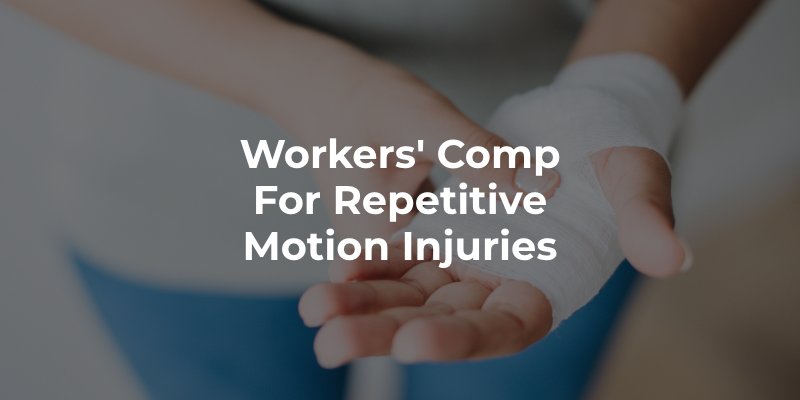Our attorneys have been assisting the Clark County
community for over 35 years.
Repetitive motion injuries are real, and they can be debilitating. However, recovering compensation for repetitive stress injuries in the workplace isn’t easy. Injuries that take longer periods of time to show up can create nightmares when you try to recover compensation.
Why is that the case?
That’s what we want to review here, but if you think you have a work injury claim in Las Vegas, we encourage you to reach out to a member of our team for a free consultation so we can point you in the right direction as quickly as possible.

Repetitive motion injuries (RMIs), also known as repetitive strain injuries (RSIs), occur when continuous stress is placed on certain muscles, tendons, or nerves. These injuries commonly affect joints such as the wrists, elbows, and shoulders, as well as other parts of the body that endure repetitive tasks. Carpal tunnel syndrome, tendinitis, and bursitis are among the most common types of repetitive motion injuries.
These injuries are often seen in jobs that involve repetitive movements, such as typing, operating machinery, or lifting objects. Over time, these repetitive tasks wear down tissues and can lead to chronic pain, inflammation, and decreased function.
One of the main challenges of filing a workers’ compensation claim for a repetitive motion injury is the gradual onset of symptoms. Unlike a sudden injury from an accident, RMIs develop over time, making it difficult to pinpoint exactly when and how the injury occurred. This can lead to questions from insurance companies about whether the injury is truly work-related.
In Nevada, workers must demonstrate that their injury occurred due to workplace duties. RMIs do not typically happen from one specific incident, so you may need to provide medical documentation showing that the injury resulted from prolonged, repetitive activities at work. Additionally, a medical professional may need to support your claim by verifying that your job duties directly contributed to the injury.
If your repetitive motion injury claim is accepted, you may be eligible for several types of benefits under Nevada’s workers’ compensation laws:
It is not uncommon for insurance companies to deny repetitive motion injury claims, often arguing that the injury is not work-related or does not warrant compensation. If this happens, do not be discouraged. There are steps you can take to appeal the denial:
Navigating a workers’ comp claim for a repetitive motion injury can be complex, but you do not have to handle it alone. At DiMarco | Araujo | Montevideo’s Nevada office, we are here to provide the legal support you need. Contact us today to schedule a free consultation, and let us help you pursue the benefits you deserve.